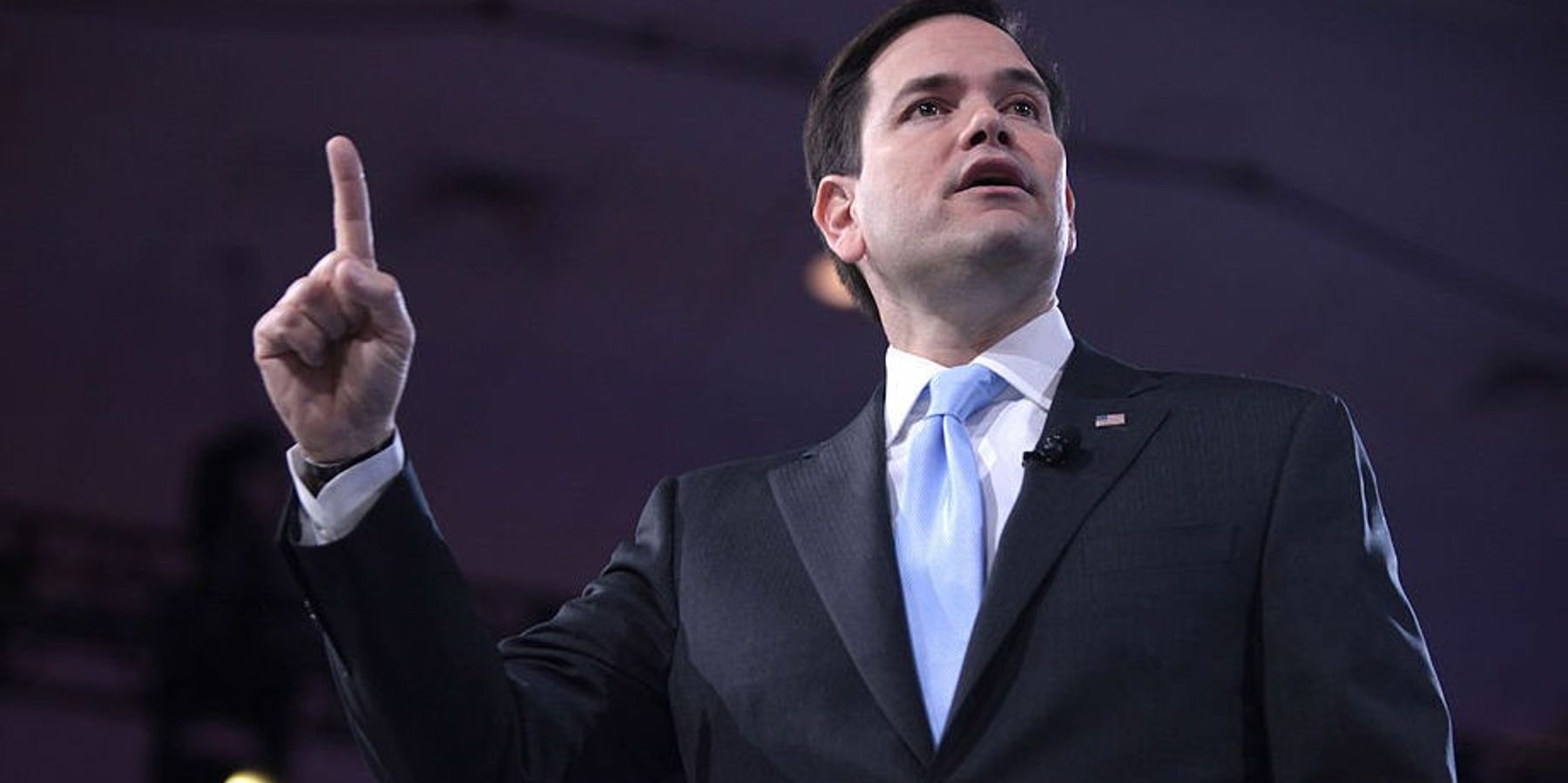News Monday that President-elect Trump was eyeing three hawks for top slots in his administration has put a bit of a damper on the headiness that restrainers on the right were feeling over weekend news that Nikki Haley or Mike Pompeo would not be joining the administration.
By 8 p.m. Monday, there was confirmation that Elise Stefanik, arch-defender of Israel who once worked for the neocon outfit Foundation for the Defense of Democracies, and Bill Kristol's Foreign Policy Initiative, is Trump's pick for UN ambassador.
China hawk Rep. Mike Waltz, who spent much of his time on Capitol Hill this year saber rattling about Chinese military and spies in our backyard, and calling for a "new Monroe Doctrine" and a lot more military build-up to confront them, is Trump's pick for National Security Advisor. He worked in the George W. Bush Pentagon and for Vice President Dick Cheney as a counterterrorism advisor.
Add to that, he resisted Trump's efforts to get the U.S. military out of the 20-year war in Afghanistan, and like many uber-hawks in Congress, has been open to bombing Iran.
To top it off for appointment watchers, news hit that Trump is going to tap Senator Marco Rubio, longtime hawk who spent the better part of his Capitol Hill career promoting neoconservative foreign policy positions, particularly on Iran and the Middle East, for Secretary of State. He was a big defender of the war in Iraq until he was running for president in 2016 and Trump had made it unpopular.
Some point out that he recently voted against Ukraine aid, and has said the war in Ukraine must end in a negotiated settlement. However, on Israel and Iran he has never wavered. Rubio, who was reportedly close to late-pro-Israel billionaire Sheldon Adelson and other big neocon donors, has supported illegal settlement building in the West Bank and has suggested that the U.S. may have to go to war with Iran over its nuclear program. On the current conflict, he has defended Israel's every move in the war in Gaza and Lebanon. He has warned that Iran wants to make Israel "an unlivable place."
He has always been a staunch opponent to any U.S. deal that would hem in Iran's nuclear program, including the JCPOA.
Later Monday, former Arkansas Gov. Mike Huckabee, a pro-Israel evangelical Christian supporter of Israel who has been a vocal supporter of illegal settlements in the West Bank, was named by Trump as the next U.S. ambassador to Israel. By night it was announced that FOX News personality and Iraq/Afghanistan war vet Pete Hesgeth is Trump's nominee for Secretary of Defense.
The appointments of Stefanik, Waltz, Huckabee, and Hesgeth have been announced by Trump. As of Monday afternoon, Rubio's nomination had yet to be confirmed. But the day's news has left observers with the feeling that it is déjà vu all over again.
"Trump often deviated from the views of his top advisers. And I know @DonaldJTrumpJr and others are doing what he said below," said Glenn Greenwald, pointing to a X post reply by Don Trump Jr. about keeping neoconservatives out of the administration. "But Trump's last 3 appointees - Elise Stefanik, Mike Weltz (sic), and Rubio - are war hawks fully aligned with the worst prongs of bipartisan DC consensus."
- Stefanik UN pick: Win for hardliners aiming to frontload Trump WH ›
- Meet Trump's new National Security Council | Responsible Statecraft ›
- Diplomacy Watch: Here comes Trump | Responsible Statecraft ›
- What Rubio said about multipolarity should get more attention | Responsible Statecraft ›
- Mr. Trump, you would've been lucky to have Dan Davis on your team | Responsible Statecraft ›
- Is Huckabee too ‘extreme’ to be US ambassador to Israel? | Responsible Statecraft ›
















